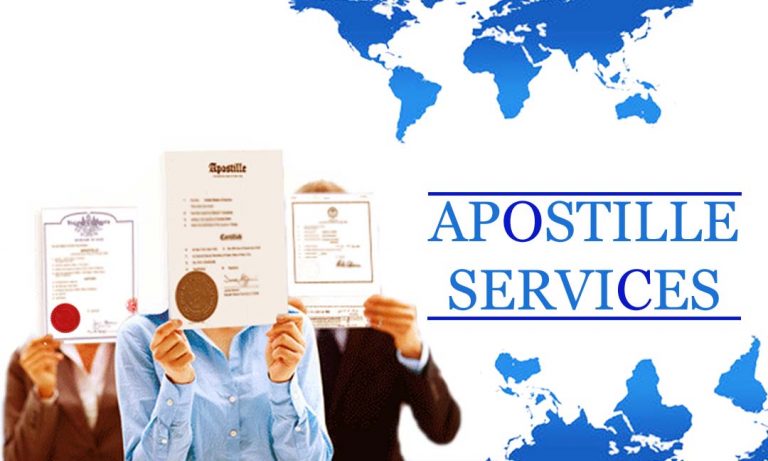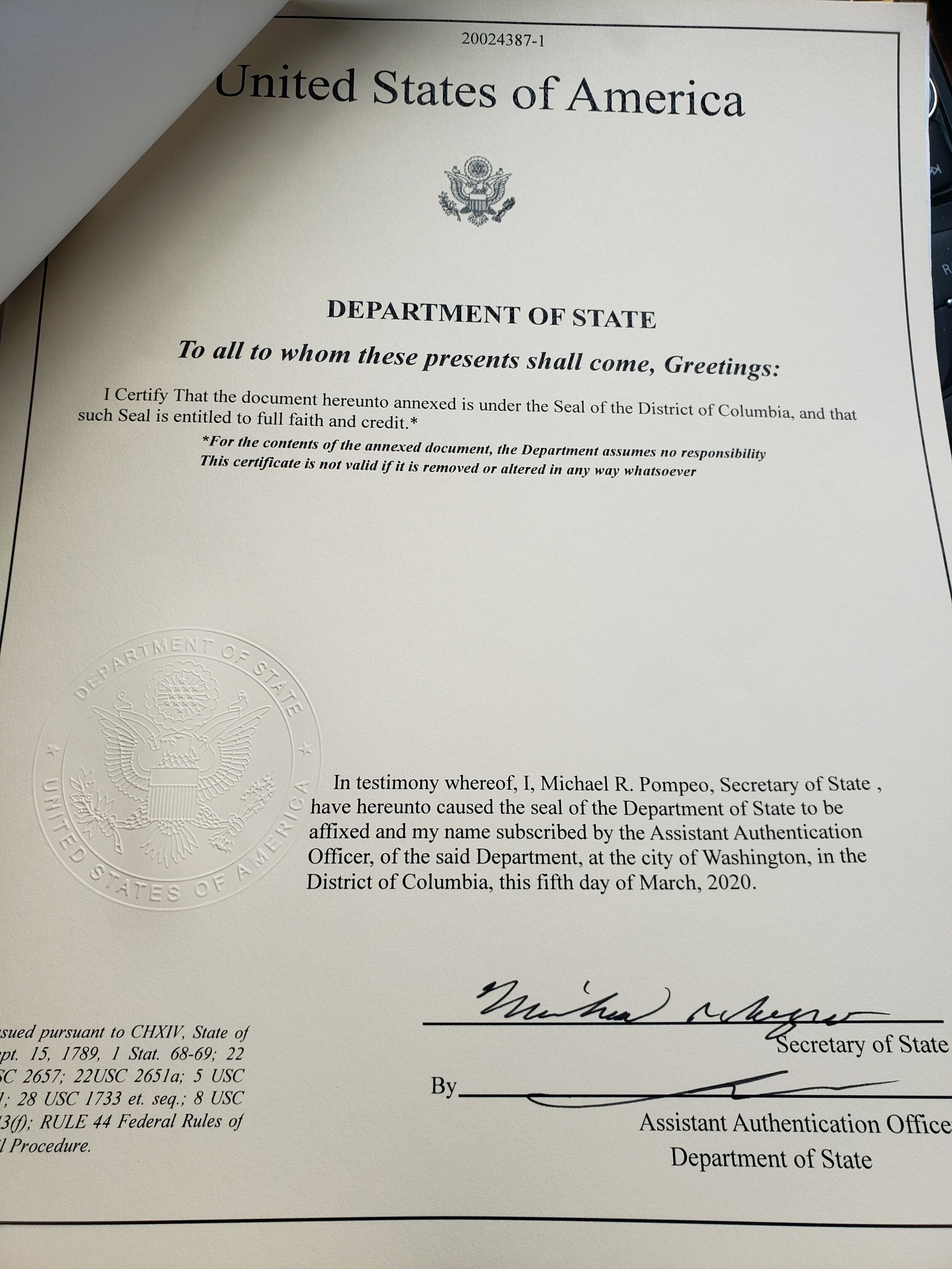Understanding the Value of Apostille Accreditation and Why It Is Vital for Lawful Records
In the realm of lawful documents, the procedure of verifying and verifying documents for international use is an essential element that can not be neglected. Amongst the numerous mechanisms offered for this function, apostille accreditation attracts attention as a structured and widely identified method. Comprehending the ins and outs and ramifications of apostille certification on legal files is vital for people and organizations participating in cross-border activities. This certification brings extensive value in making sure the authenticity and approval of important documents beyond national boundaries, however just what does it entail, and why has it become essential in today's globalized world?
The Definition of Apostille Qualification
Apostille certification is a customized type of authentication that confirms the legitimacy of a lawful file for international use. This certification is essential for making certain that records stemming in one nation are identified as legitimate in another, streamlining the procedure of cross-border purchases, legal process, or personal matters like marriage or fostering. The Hague Apostille Convention of 1961 established the structure for this simplified accreditation process amongst getting involved nations.
To acquire an apostille accreditation, the assigned authority in the file's nation of origin should verify the paper's credibility prior to attaching the apostille. As soon as attached, the apostille makes certain that the paper will be approved as legitimate in any type of other country that is component of the Apostille Convention, without the need for more certification.
Benefits of Apostille for Legal Papers
The use of apostille qualification simplifies the international recognition procedure for legal documents, using substantial benefits in assisting in lawful procedures and cross-border involvements. One crucial advantage of apostille qualification is that it guarantees the credibility of the document concerned. By affixing an apostille certificate, the file ends up being conveniently accepted in nations that are part of the Hague Apostille Convention, eliminating the need for further verification. This not only saves time however additionally reduces the governmental hurdles that usually come with international document verification processes.
Furthermore, apostille qualification boosts the total effectiveness of lawful treatments by simplifying the procedure of validating the legitimacy of a paper. This is especially beneficial in circumstances where time is important, such as in lawful matters needing speedy cross-border actions. In addition, apostille accreditation assists in promoting trust fund and self-confidence amongst celebrations entailed in worldwide deals, as it acts as an internationally recognized seal of authorization for the paper's legitimacy. Overall, the advantages of apostille accreditation for legal files contribute in advertising smoother global interactions and making sure compliance with legal demands across borders.
Apostille Vs. Legalisation: Key Differences
When identifying in between the processes of apostille qualification and legalisation for lawful papers, it is necessary to comprehend the vital distinctions in their corresponding verification techniques. An apostille is a streamlined kind of legalization that is approved amongst countries that are component of the Hague Apostille Convention.
This process can be extra taxing and costly contrasted to obtaining an apostille. The choice between apostille accreditation and legalisation depends on the certain demands of the country where the document will certainly be utilized.
Nations Accepting Apostille Accreditation

While the Hague Apostille Convention has considerably streamlined the process of cross-border record authentication, there are still countries that are not event to the convention - Houston TX Apostille. As a result, documents destined for these nations might need conventional legalisation treatments with embassies or consulates. It is vital for organizations and people managing worldwide transactions to confirm the certain demands of the location country to make certain conformity with their legal standards
Steps to Get Apostille for Files
To acquire an apostille for your papers, you have to start by identifying the appropriate issuing authority in your country. As soon as you have actually identified the appropriate authority, the next step is to guarantee that your document fulfills all the requirements for apostille accreditation.
After validating that your record meets the standards, you will certainly need to fill in an apostille application provided by read this article the providing authority. This type will certainly need information concerning the record being validated and the nation where it will certainly be used. Together with the completed application kind, you will likely require to send the initial file, a duplicate of your identification, and any applicable costs.

Final Thought
To conclude, apostille certification plays a critical function in making sure the credibility and credibility of legal files for worldwide use (Houston TX Apostille). Recognizing the value of apostille certification is important for individuals and organizations navigating the complexities of cross-border transactions and lawful issues. By obtaining apostille qualification, parties can streamline the process of record verification and authentication, inevitably saving time and sources in the worldwide arena
To obtain an apostille accreditation, the marked authority in the document's nation of beginning must validate the paper's authenticity before affixing the apostille. As soon as affixed, the apostille guarantees that the document will certainly be approved as legitimate in any other nation that is component of the Apostille Convention, without the need Read Full Report for more qualification.
By affixing an apostille certificate, the file ends up being easily approved in nations that are part of the Hague Apostille Convention, eliminating the need for more authentication.Distinguishing in between apostille certification and legalization discloses the differing acceptance of these authentication approaches throughout different countries, with some nations specifically acknowledging and adhering to the apostille process. The apostille qualification is extensively accepted among countries that are part of the Hague Apostille Convention, which currently has 118 member states.